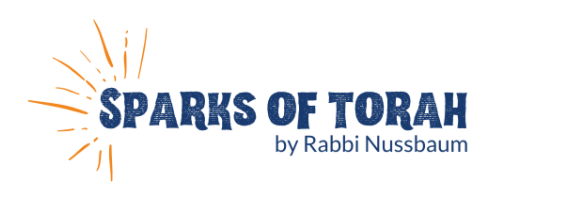By Rabbi Nussbaum
VOLUME 98 NUMBER 3
October 30, 2020
CHESHVAN 12, 5781
PARSHAS LECH LECHA
Candlelighting Time 5:41 PM
Hashem made a covenant with Avrohom foretelling him of the future exiles that his children will experience and eventually emerge from. As with any agreement both sides must participate. Certainly, Avrohom was present and Rashi points out, the smoky furnace and fiery torch, were the emissaries of Hashem. Rabbeinu Bachya further explains that the fire indicated that the sacrifices that Avrohom was instructed to offer at this time were accepted by Hashem thereby consummating the pact. Additionally, Nachmonides compares this event to that of the receiving of the Torah at Mt. Sinai. Just as then darkness descended upon the mountain, so too, the smoke alluded to that. Also, the fire was indicative of the fire that was present when the Torah was given.
Netziv suggests a fascinating aspect to the covenant which took place. The fiery torch followed immediately after the smoke passed between the animals which had been place on either side. The terrible anguish that we will endure during our exiles will suddenly disappear when the light of Moshiach will brighten the skies with hope and anticipation as we enter a new era of peace and tranquility. The analogy of the torch is that we will be unable to view the fire until suddenly it will appear and illuminate our lives bringing joy and happiness into our realm of existence. So too, Hashem will orchestrate that our salvation will be imperceptible until the last moment when unexpectedly and swiftly He will deliver us from our difficulties.
In sefer Shemos Netziv adds that the shofar that was sounding when Hashem revealed Himself did not weaken as time went on, rather its blast became stronger and more powerful. The message is that as we become further entrenched in our exile, Torah will become invincible and irrepressible. Although this appears to be counter intuitive, that is exactly the point. Our extrication from exile will be enigmatic and beyond our grasp. And we see, the incredible growth of Torah globally far exceeding our expectations. The haze surrounding our civilization is baffling and disconcerting. We do not seem to understand how to proceed successfully regarding our economy, leadership and many other issues. Within this puzzling atmosphere that we find ourselves to be in, the surge of Torah is impressive and encouraging. Despite all the challenges that we encounter, our thirst for Torah is increasing and the sounds of Torah are booming in the study halls of the entire planet. It is though that the seeming desperate situation is a catalyst for that which is transpiring. And that is exactly what Netziv understood from the smoke and fire that were present at the covenant agreement between Hashem and Avrohom.
Based upon this explanation, Nachmonides’ understanding that this agreement was allusive of Hashem’s revelation on Mt. Sinai becomes much more meaningful. It is only through our ongoing and increasing commitment to Torah study that eventually we will promote the coming of Moshiach.
However, we still need to understand why it was necessary for Avrohom to bring the offerings? The Midrash explains that the sacrifices referred to the nations that would eventually enslave and terrorize us. They were brought to mitigate the horrendous potential of the exiles that we would enter, serving as an atonement. That is why they were sliced in half, indicative of the future demise of the empires that would torture us. It was within that specter of danger that Avrohom passed through together with the Divine Presence represented by the furnace and the torch. We have endured and successfully flourished throughout the turbulent and chaotic times in our history with the merit of those sacrifices and the fortification of our dedication to Torah. And so, it is today, we will with the help of Hashem weather these difficult oppressions that seek to weaken our resolve to serve Hashem and observe the Torah appropriately.
A BYTE FOR SHABBOS
Although Avrohom did not want to benefit from the spoils of the war after he defeated the four powerful kings, nonetheless, he allowed those who had fought with him to enjoy them. We may be strict upon ourselves, but we must not impose our restrictions upon others.
CHOFETZ CHAIM
GOOD SHABBOS
/


